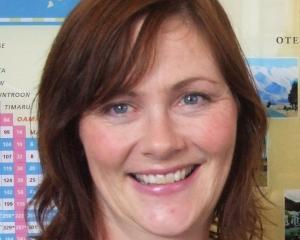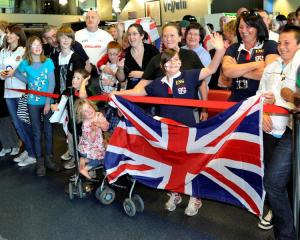
Dunedin City Council officials confirmed at a pre-tournament media briefing yesterday a large part of the student area, including Hyde St - home to an annual keg party - would be closed before and after matches.
Other predominantly student streets affected include Grange St, Frederick St, Leith St, Clyde St, Albany St, Forth St, Union St East and Harbour Tce.
On match days, these streets would be closed up to three hours before kick-off, and reopen two hours following the completion of each match.
Otago University Students Association president Logan Edgar, who lives on Hyde St, said the closures meant there was "potential for dramas" for students living in the affected areas.
"The parties are going to happen anyway, but the bigger issue is the public outcry from the scarfies because the council is shutting down their street and not informing them."
Mr Edgar offered to work with the council to inform students of the closures, especially if they "swing a Rugby World Cup ticket my way".
Dunedin area police tactical response manager Alastair Dickie said police regularly met University of Otago staff, including the proctor, to discuss tournament planning.
"There is nothing to suggest [parties] at this stage, but we can't rule it out."
Police would be assisted in patrolling the area by Campus Watch, community patrols, city safety officers, and Maori wardens, working as the "eyes and ears" on city streets.
Police were working out staffing numbers for the tournament, with 50 officers to be stationed inside Forsyth Barr Stadium - known as Otago Stadium during the Rugby World Cup.
At least 20 staff would police the inner city, with others to patrol licensed premises, suburban areas, highways and Dunedin International Airport, and some used to guard any VIP guests.
Detectives, the Armed Offenders Squad and frontline staff would also need to be available.
The intelligence unit would collate information, "... just trying to identify anyone or protests around the city that could hinder how things could go".
Insp Dickie said police would have to consider the influx into the Dunedin CBD on the days before and after each match.
Police from other areas were unlikely to be used.
Numbers could be stretched on the weekend of September 24-25, when the Alexandra Blossom Festival coincided with the England v Romania game.




